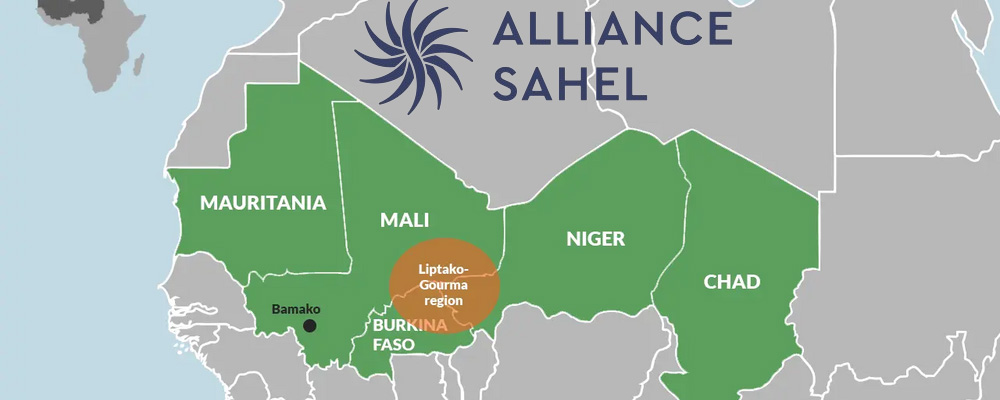Africa’s Coup Belt:Democracy Under Siege
.png)

Military coups are resurging across Africa’s Sahel, toppling governments and redrawing geopolitical lines. Driven by insecurity, corruption, and shifting global alliances, this wave of juntas threatens democracy, deepens instability, and signals a dramatic recalibration of power on the continent.
In recent years, Africa—particularly the Sahel region—has experienced a dramatic resurgence in military coups, unsettling a continent that had seemed to be moving beyond its turbulent history of juntas and authoritarianism. From Mali and Niger to Burkina Faso and Chad, a new era of military rule is emerging, reshaping political dynamics, regional alliances, and the future of democracy across Africa.
Between 2020 and 2024, at least nine successful coups were carried out across the continent, with the Sahel acting as the epicenter. Countries like Mali (2020, 2021), Guinea (2021), Burkina Faso (twice in 2022), Chad (2021), Niger (2023), and Gabon (2023) have seen their civilian governments toppled, often with significant public support. The reasons for these power seizures are consistent: widespread corruption, mounting insecurity due to jihadist insurgencies, economic hardship, and a growing disconnect between the political elite and ordinary citizens.
Crowds in cities like Bamako and Niamey have often welcomed the military with open arms, seeing soldiers as a force of last resort after years of misrule. In some cases, these celebrations have included Russian flags—reflecting a broader geopolitical shift.
What’s Fueling the Coup Wave?
1. Security Collapse:
The Sahel has become a stronghold for jihadist violence. Groups linked to al-Qaeda and the Islamic State continue to expand, while governments struggle to maintain control. In Burkina Faso, nearly half the country is outside government authority. Militaries have capitalized on this security vacuum, presenting themselves as saviors in the face of escalating violence.
2. Failed Governance:
Across many coup-hit nations, frustration with civilian governments has reached a boiling point. Allegations of electoral fraud, nepotism, and the decay of public institutions have eroded public trust. In places like Guinea and Gabon, rigged elections and dynastic politics have left citizens disillusioned and desperate for change—any change.
3. Shifting Global Influence:
Foreign powers play a significant, if indirect, role. Russia, through the Wagner Group and its affiliates, has expanded its footprint by offering military support without the “strings” of democratic accountability. In Mali and Burkina Faso, military leaders have embraced Moscow, pushing out French forces and U.S. advisers.
China, meanwhile, maintains a non-interference policy, focused on protecting its commercial interests. Its quiet pragmatism and investment in infrastructure have made it an attractive economic partner, even under military rule.
In contrast, Western powers are losing influence. France has been expelled from several Sahel countries, and U.S. sanctions and aid freezes have done little to reverse the coups. The West now faces the hard task of rethinking its engagement strategy—balancing democratic ideals with pragmatic security concerns.
The Democratic Backslide
The coups mark more than a momentary crisis—they represent a dangerous normalization of military rule. Juntas that initially promised quick transitions to democracy, like those in Mali and Burkina Faso, have repeatedly delayed elections. Regional bodies such as ECOWAS and the African Union have struggled to respond effectively, and sanctions have often had limited impact.
Public sentiment remains divided. While some citizens—particularly younger populations—see military rule as a break from decades of political stagnation, human rights groups warn that crackdowns on dissent, media repression, and authoritarianism are rising.
Security and Humanitarian Fallout
The security situation remains dire. Coups have not curbed extremist violence; in fact, the focus on political consolidation has often distracted from anti-insurgency efforts. Coordination between regional forces has also suffered, weakening the collective fight against terrorism.
Meanwhile, the humanitarian toll is worsening. Over five million people are displaced across the Sahel, and food insecurity is escalating as violence disrupts farming and aid distribution.
Beyond the Sahel: Contagion Risk
The coup wave has spread beyond the Sahel. Gabon’s 2023 coup was sparked by widespread dissatisfaction with dynastic rule and corruption, suggesting similar dynamics could trigger unrest elsewhere. Without meaningful governance reforms, other fragile democracies remain vulnerable.
The Road Ahead: Rebuilding Democracy
What’s needed now is a multidimensional response:
African Leadership: ECOWAS and the African Union must offer more than sanctions—support for institutional reform and security training could help shift incentives away from military rule.
Delivering on Democracy: Civilian governments must prove they can offer more than broken promises. Job creation, public service delivery, and anti-corruption efforts are essential to restoring faith in democracy
Rethinking Global Engagement: The West must recalibrate its role, moving from paternalistic approaches to supporting African-led solutions. Meanwhile, the growing roles of Russia and China must be acknowledged as part of a complex geopolitical landscape.
Final Thoughts:
A Critical Juncture Africa’s coup resurgence is not just a rollback of democracy—it’s a wake-up call. Decades of flawed governance, security crises, and foreign manipulation have created a perfect storm. The continent stands at a crossroads. The decisions made by African leaders—and the support they receive from the international community—will shape the trajectory of governance, security, and development for generations to come.
The dream of democracy in Africa is still alive, but it requires bold, urgent, and collaborative action to ensure it doesn't fade into history.
Shreya Gupta is an emerging voice in journalism, currently reporting with Cult Current.